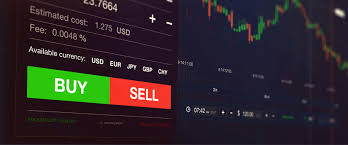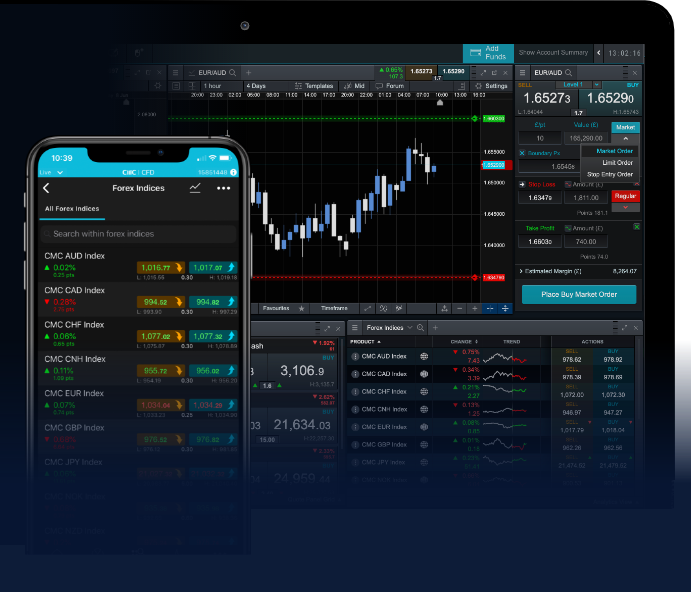
Understanding CFD Forex Trading Platforms: A Comprehensive Guide
In the fast-paced world of financial markets, cfd forex trading platform Trading Brokers in Nigeria have gained significant attention, especially in the context of CFD (Contract for Difference) and forex trading. These platforms offer unique advantages and opportunities for traders looking to capitalize on the fluctuations in currency prices. In this article, we will delve deep into what CFD forex trading platforms are, how they work, their benefits, and what to consider when choosing one.
What is CFD Forex Trading?
CFD forex trading is a derivative trading method that allows traders to speculate on the price movements of currency pairs without owning the actual assets. Instead of purchasing the asset itself, traders enter into a contract with a broker, agreeing to exchange the difference in the asset’s price from the time the contract is opened to when it is closed. This means that traders can potentially profit from both rising and falling markets.
How Do CFD Forex Trading Platforms Work?
CFD forex trading platforms provide traders with a digital interface to access financial markets. Here’s a simplified breakdown of their operation:
- Opening an Account: To trade CFDs, a trader must open an account with a forex broker offering CFD services. This often involves providing personal information and verifying identity.
- Depositing Funds: After account creation, traders need to deposit funds to start trading. Most platforms offer various payment methods including bank transfers, credit cards, and e-wallets.
- Choosing Trading Instruments: Traders can select from a vast array of currency pairs, commodities, indices, and more to trade via CFDs.
- Placing Trades: Using the platform’s interface, traders can enter trades by specifying parameters like the size of the trade, leverage, and whether they are buying or selling.
- Monitoring Positions: Traders can track their open positions in real-time, adjusting or closing trades as market conditions change.
- Withdrawing Funds: Profits can be withdrawn through the same methods used for deposits, often subject to the broker’s terms and conditions.

Benefits of CFD Forex Trading Platforms
There are numerous advantages to using CFD forex trading platforms, including:
- Leverage: CFD trading allows traders to control a larger position with a smaller amount of capital. This can amplify profits, though it also increases potential losses.
- Diverse Market Access: Traders can speculate on various markets through a single platform, including Forex, commodities, stocks, and indices.
- No Ownership of Underlying Assets: As traders do not own the actual assets, they avoid costs associated with ownership like storage fees for physical commodities.
- Ability to Profit in Falling Markets: CFD trading allows for ‘short selling’, enabling traders to profit when prices drop.
- Advanced Trading Tools: Most platforms offer advanced charting tools, technical indicators, and automated trading options, which can enhance trading decisions.
Considerations in Choosing CFD Forex Trading Platforms
Selecting the right CFD forex trading platform is crucial for a successful trading experience. Here are some key factors to consider:
- Regulation: Always choose a platform regulated by a credible authority to ensure your funds are protected.
- Trade Execution Speed: Fast trade execution can be the difference between profit and loss in volatile markets.
- Commissions and Spreads: Understand the fee structure of the platform, including spreads, commissions, and overnight financing fees.
- User Interface: A user-friendly platform can make trading more efficient, especially for beginners.
- Customer Support: Reliable customer service can help resolve issues quickly, contributing to a seamless trading experience.
- Educational Resources: Platforms that provide educational resources, webinars, and market analysis can be beneficial for traders at all skill levels.

CFD Trading Strategies
When engaging in CFD forex trading, having a well-defined trading strategy is essential. Here are a few popular strategies:
- Scalping: This strategy involves making rapid trades to capture small price movements. Scalpers typically hold positions for short timeframes.
- Day Trading: Day traders open and close trades within a single trading day to benefit from intraday price fluctuations.
- Swing Trading: Swing traders aim to capture price swings over several days or weeks, analyzing trends and patterns over a longer timeframe.
- Position Trading: This long-term strategy involves holding a position for an extended period, typically based on fundamental analysis.
Risks of CFD Forex Trading
While CFD trading can be lucrative, it also comes with significant risks. Traders should be aware of:
- Market Risk: Prices can move against you, leading to substantial losses.
- Leverage Risk: While leverage can amplify gains, it can also magnify losses, resulting in losing more than your initial capital.
- Liquidity Risk: Some assets may not have enough buyers and sellers, potentially leading to delays in executing trades.
Conclusion
CFD forex trading platforms provide an efficient and accessible way for traders to participate in global financial markets. By understanding how these platforms work, their benefits, and risks, you can make informed decisions and enhance your trading experience. Always remember to conduct thorough research, develop a solid trading strategy, and most importantly, practice sound risk management. With the right knowledge and tools, CFD trading can be a rewarding endeavor.